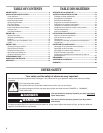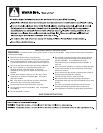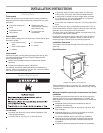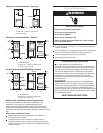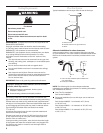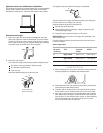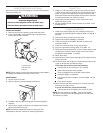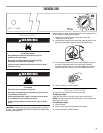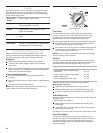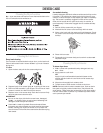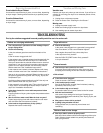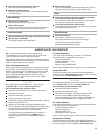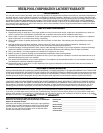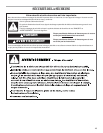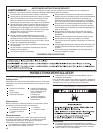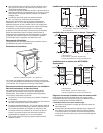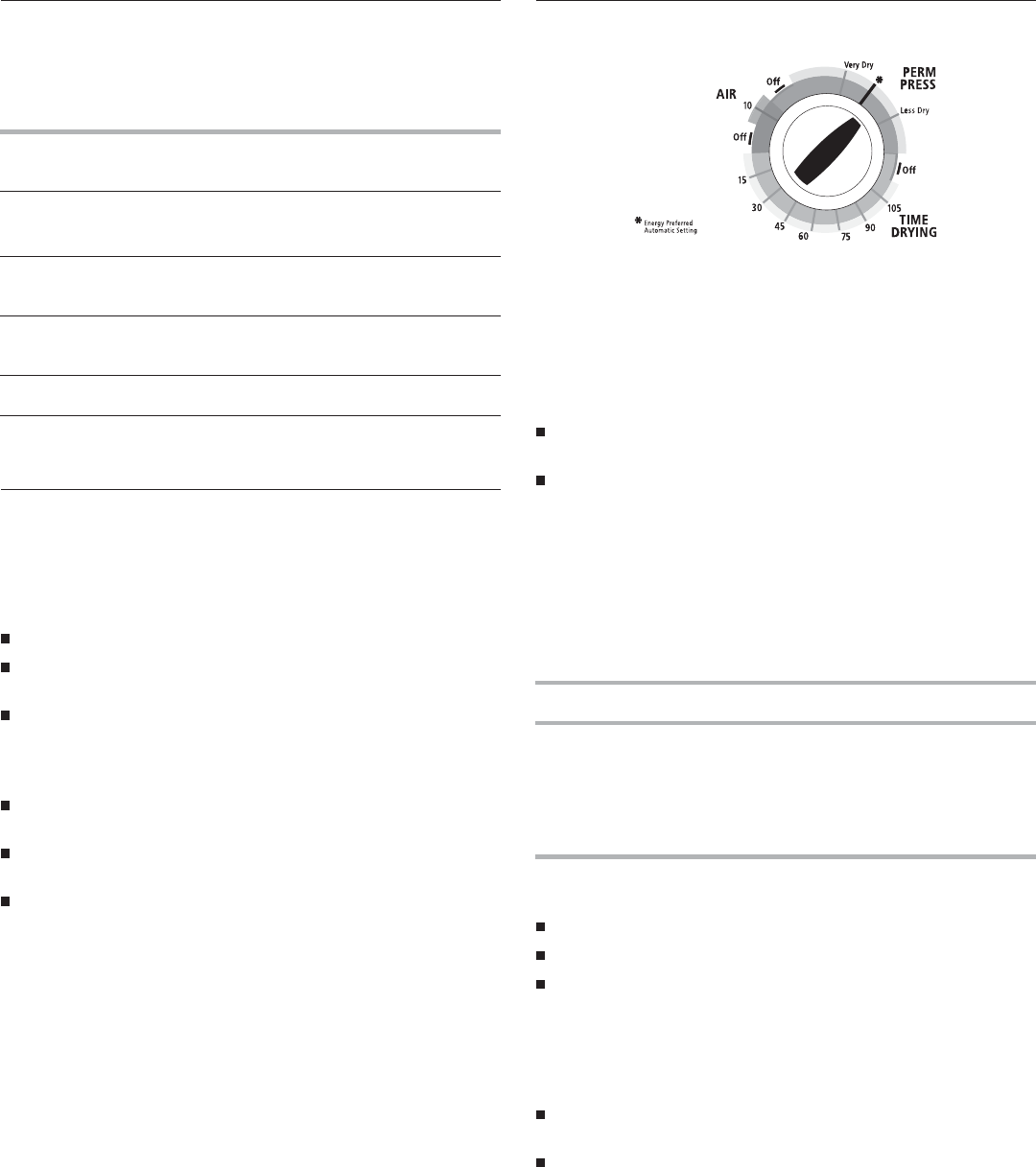
10
Loading
Load clothes loosely into the dryer. Do not overload the dryer.
Allow space for clothes to tumble freely. The following chart
shows the maximum load you can place in your compact dryer.
Expect longer drying times.
Drying, Cycle, and Temperature T ips
Select the correct cycle and temperature for your load.
Your dryer tumbles the load without heat during the last few
minutes of all cycles to make the load easier to handle.
Drying tips
Follow care label directions when they are available.
If desired, add a fabric softener sheet. Follow package
instructions.
Remove the load from the dryer as soon as tumbling stops to
reduce wrinkling. This is especially important for permanent
press, knits, and synthetic fabrics.
Cycle and temperature tips
Dry most loads using the Energy Preferred Automatic
Setting (
*
).
Use a no heat (air) setting for rubber, plastic, or heat-sensitive
fabrics.
Line dry bonded or laminated fabrics.
NOTE: If you have questions about drying temperatures for
various loads, refer to the care label directions.
Cycles
Cycle Control knob
Perm Press
This automatic cycle shuts off the dryer when the selected
dryness is reached. The Cycle Control knob does not move
until the load is almost dry. After the cool down, the knob
automatically turns to an Off area and tumbling stops.
Dry most loads using the Energy Preferred Automatic Setting (
*
).
If the load is drier than you like, select a setting closer to
Less the next time you dry a similar load.
If the load is not as dry as you like, complete drying using the
Timed Drying cycle. The next time you dry a similar load,
select a setting closer to Very Dry.
NOTE: Drying time with an automatic cycle varies according to
the type of fabric and size of load.
Air Cycle
Use this cycle for items that require drying without heat, such
as rubber, plastic, and heat-sensitive fabrics. See the chart for
examples of items that can be dried using an air cycle.
*(Minutes).
Reset cycle to complete drying, if needed.
When using an air cycle
Check to see that coverings are securely stitched.
Shake and uff pillows by hand periodically during cycle.
Dry item completely. Foam rubber pillows are slow to dry.
Timed Drying Cycle
Use this cycle to complete drying if items are still damp after the
automatic cycle.
Timed Drying is also useful for:
Heavyweight items and work clothes that require a long
drying time.
Lightweight items, such as lingerie, blouses, and knits that
require a short drying time.
For damp dry, turn the Cycle Control knob to 30 minutes or less.
End of Cycle Signal
The dryer sounds a signal to let you know when the cycle is
nished. The signal is not adjustable and cannot be turned off.
The signal is helpful when you are drying permanent press,
synthetics, and other items that should be taken out as soon
as the dryer stops.
Heavy
work
clothes
2 pair of pants, 3 work shirts
Delicates 1 camisole, 2 slips, 4 undergarments,
1 set of sleepwear, 1 half slip
Towels 9 bath towels; or 6 bath towels, 3 hand
towels, 6 washcloths
Mixed Load 2 pillowcases, 1 T-shirt, 2 shirts, 1 pair
slacks
Knits 2 slacks, 2 shirts; or 3 dresses
Perm Press 6 shirts; or 2 double sheets & 2 pillowcases;
or 2 singles sheets & 2 pillowcases
*emiTdaoLfoepyT
Foam rubber—pillows, padded bras,
stuffed toys
Plastic—shower curtains, tablecloths
Rubber-backed rugs
Olen, polypropylene, sheer nylon
20 - 30
20 - 30
40 - 50
10 - 20



